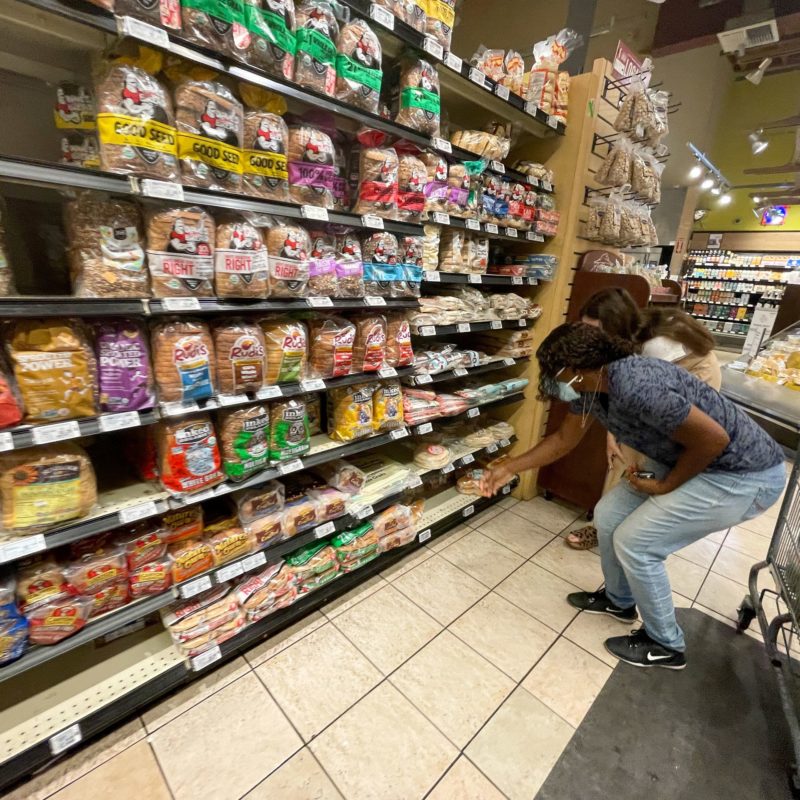
LONDON, Feb 8 (Reuters) – Shoppers around the world will pay even more for groceries this year than they did in 2022, according to retailers, consumer goods firms and investors, unless commodity costs decline or the shift to cheaper store-brand products accelerates.
Retailers and consumer goods producers have been stuck in tough price negotiations for more than a year now, with friction beginning in 2021 over COVID-related supply chain logjams.
This has since ballooned into fights over the high cost of raw materials and energy in the wake of Russia’s invasion of Ukraine, with rising prices of basic foodstuffs from bread to milk and meat exacerbating a cost-of-living crisis in Europe.
Britons paid a record 16.7% more for food in the four weeks to Jan. 22 compared to the same period last year, according to research firm Kantar. The U.S. food index, including meals eaten at home and in cafes and restaurants, increased 10.4% for the year ended in December.
Mark Schneider, CEO of the world’s biggest food group Nestle, last week told a German newspaper it would have to raise prices of its food products further this year to offset higher production costs that it has yet to fully pass on to consumers.
“Investors will pay a premium for companies that exhibit pricing power in their portfolio without adversely impacting volumes and market share,” Jack Martin, a fund manager at Oberon Investments, said.
Big, packaged-goods companies’ margins have been squeezed by higher input costs for over a year as the price of ingredients like wheat and sunflower oil have skyrocketed since the Ukraine war began last February.
Unilever ULVR.L, which is due to report full-year results on Thursday, said in October that its underlying price growth – an indicator of pricing – rose to a record 12.5% in the third quarter. Nestle and dairy giant Danone DANO.PA are due to report results later this month.
Tineke Frikkee, a portfolio manager at Waverton Investment Management, expects Unilever to hike prices in 2023, though selectively.
“The last time we heard from Unilever, it was made clear that they prefer to sell fewer products at higher prices, to keep prices below peers and gain market share,” Frikkee said.
RETAILER PUSHBACK
Consumer goods manufacturers – will continue to raise prices until they recover their profitability, said Bernstein analyst Bruno Monteyne.
“The only thing that can stop this is…consumers starting to trade down to private-label products at a more rapid pace … (and) if commodities keep declining, then there may be no need for more price increases.”
In December, the CEO of Walmart WMT.N, the world’s biggest retailer, warned that some “packaged goods suppliers are still pointing us towards more inflation next year on top of the mid-double digits this year”.
“Dry grocery and consumables have double-digit to mid-double-digit inflation that feels stubborn to us,” Doug McMillon said, adding that suppliers were being encouraged to focus on “the longer term with us”.
European retailers are also pushing back.
“With the big suppliers, we do insist on long-term contracts that do not have to be renegotiated,” Belgian discount retailer Colruyt COLR.BR told Reuters.
Britain’s biggest supermarket group Tesco TSCO.L and Kraft Heinz KHC.O last year could not agree on prices for some brands, resulting in several products disappearing from shelves. This month, Unilever’s Hellmann’s mayonnaise was discontinued in South African stores due to cost inflation.
Tesco CEO Ken Murphy said last month he was hopeful inflation would peak by mid-2023 and then start to ebb.
Barclays analyst Warren Ackerman said although food commodity prices on average were down 20% from March peaks, it will take time for this to reflect in companies’ costs.
(Reporting by Richa Naidu in London. Additional reporting by Jessica DiNapoli in New York and James Davey in London; Editing by Matt Scuffham and Emelia Sithole-Matarise)

